'Have to' changes when it is used in the present, past or future Here are some examples of its functions and forms Certainty Present That has to be Peter calling Negative That can't be Peter calling He doesn't have my number For a negative 'must not' or 'cannot' are used Past That has to have been Peter calling3 He has been on duty all night He ______ be exhausted 4 She always makes people repeat She ______ be a bi(2) Does / have to, etc Correct and dicuss any mistakes (A dd 5 to 10 minutes) Grammar Discussion Have to Student 'A' version and Student 'B' version, each with 10 different discussion questions

Modal Verbs English Page
Can have to must exercises online
Can have to must exercises online-Ejercicios Should / Must / Have to 1 Elige "Must" / "Should" / "Have to" (en el tiempo correspondiente) para completar estas oraciones {ejerciciocompletar} You come with us to the cinema;Can 5 You have such a beautiful voice You _____ sing for us!



1
Live • Video modal verbs Can / could exercises May / might Must / have to Shall / should Will / would Mixed modals exercisesDon't have to = Mustn't Mustn't=it is prohibited, you cannot do itHave to, must, should – obligation, prohibition, necessity, advice English intermediate grammar exercises Modal verbs Be supposed to, be allowed to, etc
Complete the sentences with must or can't 1 The baby has just had his bottle of milk He ______ be hungry !Click here for all the exercises about modal verbs We can use have to infinitive, must infinitive and should infinitive to express obligation (something you have to do) Present Positive Negative have to / don't have to strong obligation (possibly from outside) Children have to English Grammar Use Of Must/Have To/Should Trivia Quiz!
Must or mustn't, Online Exercises Learning English Task No 1723 What do you have to do and what are you not allowed to do?Fill in must or mustn'tChoose from the drop down menu and form sentences you might hear from your parents and teachersExercise on the modal verbs can, could, have to, must, might, and should
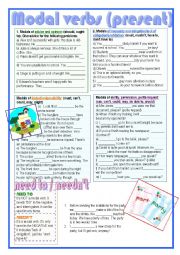



English Exercises Obligation Should Must Have To




Modal Verbs English Page
A collection of English ESL MUST or HAVE TO (obligation) worksheets for home learning, online practice, distance learning and English classes to teach about Sometimes, "must" and "have to" can be used to speak about responsibilities However, "must" is generally used for strong personal obligations and "have to" is used for responsibilities at work and in everyday life I must do this right now!We can use 'must' to talk about rulesFor the negative, we can say 'must not' or 'mustn't' Parents must take care of their children You mustn't shout in the library She must not forget her books Be careful!




Should Would




How To Teach May Might Could Must Off2class
The main verb is without 'to'2) I (must, have to) get my hair cut before the dance 3) She (has to, must) pay monthly rent to live in her apartment 4) Ted's dad said that he (must, has to) clean his room before he can play 5) I (have to, must) buy those pretty red shoes 6) The runner (has to, must) win the race to get aThey must win They must be very rich – look at their big house!




Exercise Grammar Unit 7 Modal Verbs




Test English Prepare For Your English Exam
For each space, choose which is better 'must' or 'have to' 1 Professor Watkins told me today that I give in that assignment by Friday at the latest 2 John! Once you have given students a chance to think a while, play a variation on the questions game You can begin by choosing a profession and having students ask you 10 or 15 questions about what you have to do in this job Questions can only be answered by 'yes', 'no' orCan / Can't Subject Exercises 1 Modals Exercises 2 Can vs Be Able To With Tenses 3 Can vs Could Exercise 4 Can Can't Exercises 567 Mustn't vs Don't Have to Exercises 1 / 2 / 3 10 Must vs Have to / Has to Exercises 1 / 2 / 3 11 Must / Mustn't / Needn't / Have to 1213 Modals With Passive Voice 1 / 2 14 Mustn't vs Needn't vs Can't Similar Exercises




Must Or Have To Interactive Worksheet Cute766




81 Free Must Worksheets
The film we are going to see Must y Have to MUST es una partícula que nos indica una obligación que se impone la misma persona que habla Por el contrario, HAVE TO muestra una obligación externa al hablante o bien una obligación personal mucho más fuerte que la de MUST I must study today (Tengo que estudiar hoy) Lo decido YO, que soy el que hablaShe will must have to has to wait in line like everyone else 3 All employees must mustn't have to be on time for work 4 We not have to must mustn't forget to take the chicken out of the freezer 5 If you are under 13 you have must musn't to get your parents' permission 6
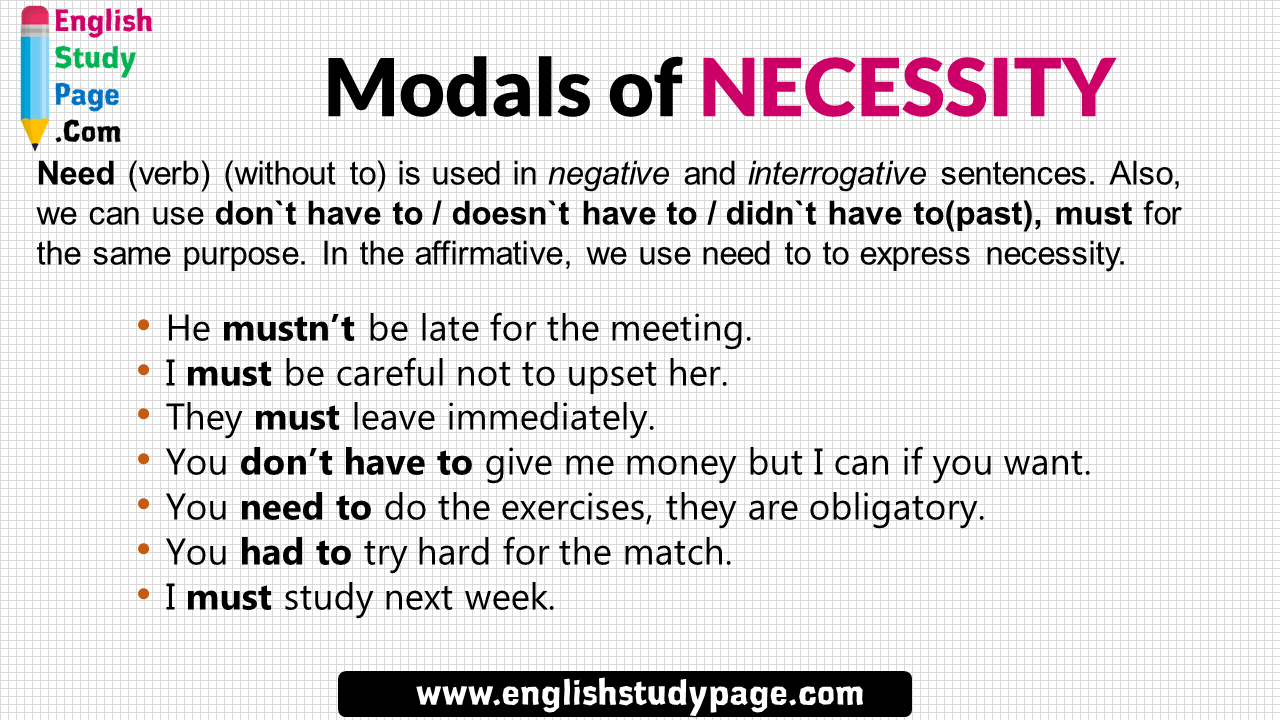



Modals Of Necessity Definition And Example Sentences English Study Page




Must Mustn T Have To Don T Have To Exercises
Have to / Don't have to exercises Have to = it is important or mandatory to do something Don't have to = it is your choice, you can do it or not Example I have to go to work now Today it is Saturday, so you don't have to wake up early Warning!!This is our third lesson on English Modal Verbs In This English lesson, we will be looking at the differences between 'should', 'must' and 'have to'Join myInstructions A) For questions 1 to 5, read each sentence, and select the correct answer from the three options B) For questions 6 to 10, read each alternative, and choose an answer that best fits the meaning of the first sentence Upgrade and get a lot more done!
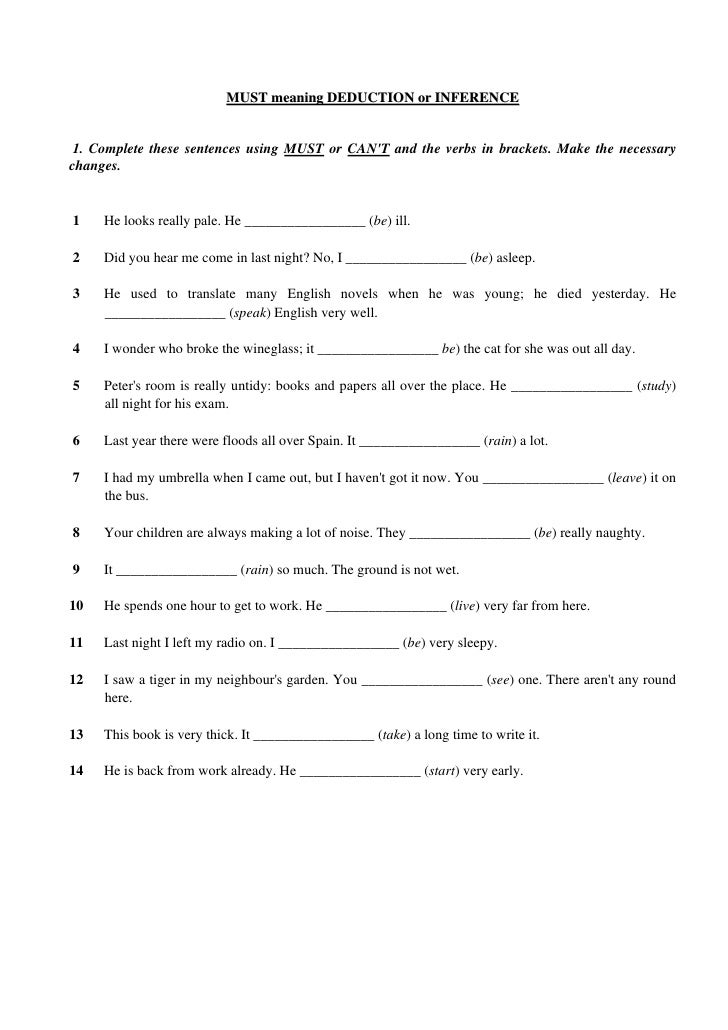



Must Exercises
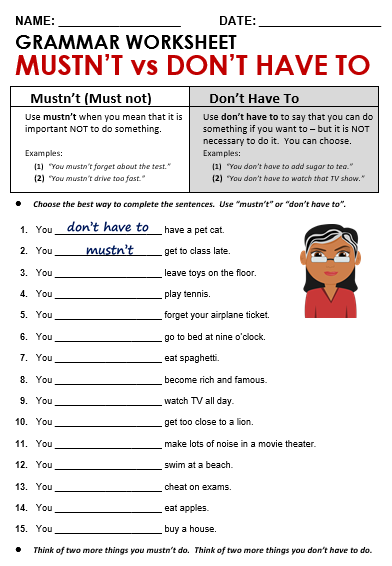



Must Necessity All Things Grammar
Explanation Modals in English Grammar can, can't, cannot can and must in sentences and questions can – to be able to/to be allowed to may – to be allowed to must, have to, mustn't, needn't Questions with can What are modal auxiliaries?Wrapup by having students compare answers with classmates, and then choose one or two students to write their answers on the board (1) have to;We use "must have", "can't have" and "might have" in the same way as the present perfect the action we are describing happened, or did not happen, in the past and is still true in the present "must have" we believe the action definitely happened "She must have left the house by now;



In Plain English Should Must Or Have To




Modal Verbs Can May Must Worksheet Pdf Languages Language Arts Discipline
This is a one way street You turn back and use Smith Street 3Grammar Rule Examples I must do my homework You mustn't be late for class We must wear our school uniform Remember!2 You have lived here for so many years You ______ know a lot of people !



1




Modals Can May Must Worksheet
Must have, can't have, could have, may have, might have Exercise instructions Fill in each gap using must have, can't have, could have, may have or might have There is a grammar explanation at the bottom of the page Example Someone was ringing I'm sure it was my brother – he promised to call Someone was ringingGrammar Exercise Can, Have to Check out our grammar page on modals of obligation Quick Review We use "can" for permission / possibility We use "have to" for obligation We use "don't / doesn't have to" for no obligation We use "can't" to say that something isn't allowed2 SHIFT TO "MUST" That must not have been the right restaurant I guess there was another one around there somewhere 3 NONE must, have got to have to necessity 1 She has to read four books for this literature class 2 She had to finish the first book before the midterm 3 She will have to finish the other books before the final exam 1




Have To Or Must Easy Grammar Quiz And Infographic World English Blog




Must Mustn T Can Can T Have To Don T Have To English Esl Worksheets For Distance Learning And Physical Classrooms
We use can't to say we are sure that something is impossibleShould can 6 I know he speaks five languages, but _____ he speak Arabic?Have to, don't have to, must, mustn't (1) Type the correct answer into the box Use contractions where possible Youhave a passport if you want to travel abroad Youarrive late Youstand on the plane There are seats for everyone
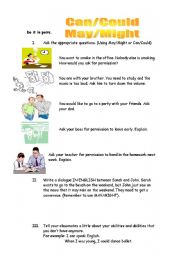



Can Could May Might Should Must Exercises Exercise
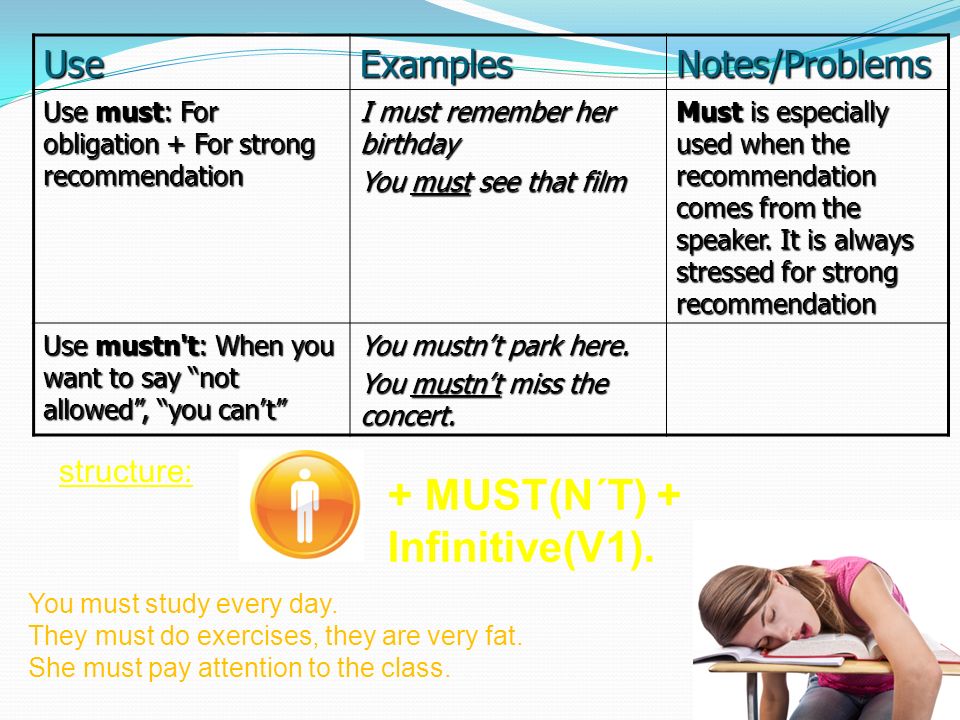



Must Mustn T Have To Don T Have To Ppt Video Online Download
Do you have to work today?Los verbos modales "can't have" / "must have" / "might have" Verb conjugation practice Contenido de suscripción Los verbos modales must, have to, should, should have Modals must, have to, should, should have passive Dictation exercises focus on grammar Contenido de suscripción Los verbos modales must, have to, should, should haveMust, can't expressing present probability Structure modal verb infinitive without 'to' must be, can't be, must have, can't have, etc We use must to express that we feel sure that something is true The team is playing really well today;




Doc Exercises With Modal Verbs Vladimir Vulic Academia Edu




English Esl Must Or Have To Obligation Worksheets Most Downloaded 132 Results
Have to, must Have to is NOT an auxiliary verb (it uses the verb have as a main verb) We include have to here for convenience Must is a modal auxiliary verb In this lesson we look at have to, must and must not, followed by a quiz to check your understanding have to for objective obligation We often use have to to say that something is obligatory, for example Children haveCan / Can't Subject Exercises 1 Modals Exercises 2 Can vs Be Able To With Tenses 3 Can vs Could Exercise 4 Can Can't Exercises 567 Mustn't vs Don't Have to Exercises 1 / 2 / 3 10 Must vs Have to / Has to Exercises 1 / 2 / 3 11 Must / Mustn't / Needn't / Have to 1213 Modals With Passive Voice 1 / 2 14 Mustn't vs Needn't vs Can't Similar ExercisesModals with "Not" 1 Must not, Do not have to Choose the best modal for each sentence



2



Fadeibuoni Files Wordpress Com 17 03 Musthaveto2 Pdf
Instructions As you watch the video, look at the examples of have to, must and should They are in red in the subtitles Then read the conversation below to learn more Finally, do the grammar exercises to check you understand, and can use, have to, must and should correctlyLearn English > English lessons and exercises > English test # Must or Have to?Look at these examples to see how can, can't, must, mustn't, have to and don't have to are used You can put your shoes and coat over there You can't leave your bike there I must call the electrician and get that light fixed You mustn't worry about me I'll be fine You have to have a licence to drive a car




Become More Healthy Exercise State Publications I North Carolina Digital Collections




Modal Verbs Can Must Worksheet Skachat Besplatno Modal Verbs Must Worksheet Modal Verbs Activities
You can do this grammar quiz online or print it on paper It tests what you learned on the have to, must page 1 Yesterday I ________ finish my geography project must mustn't had to a) must b) mustn't c) had to 2Can't shouldn't 9 I'm on my way I _____ be there in about 10 minutes canMust should 8 I _____ believe that you failed your test!




Modal Verbs Must Mustn T Should Shouldn T Don T Have To Worksheet




Modals Exercise For 2º Bachillerato
It's nearly 11 o'clock"Unit 3 Exercise 2 have to Unit 3 Exercise 2 have to Complete the sentences Use the correct form of have to Use contractions where possible Studentspay to go to private schools, but state schools are free Do you have to wear a uniform?Modals of Necessity 1 Must, Have got to, Have to Choose the correct answer for each sentence




Conjunctions Exercises With Answers Examplanning
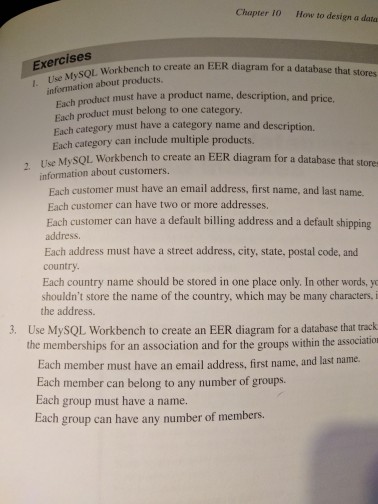



Solved Chapter 10 How To Design A Data Exercises Workbenc Chegg Com
M004 MUST or CAN'T Complete the sentences using MUST or CAN'T You've been travelling the whole day You be tired The restaurant be good It's full of people The restaurant be good It's always empty Carol get bored on the jobShould can 7 That looks very expensive It _____ have cost a fortune!~ No, I don't 3 positive In positive sentences we can often use must and have to with little difference in meaning, because many things are important both because we think so and because there are rules You must work hard in order to succeed (or you have to work ) 4 negative Note the difference in meaning




Modal Verbs Interactive And Downloadable Worksheet You Can Do The Exercises Online Or Download The Workshee Modal Verbs Modal Verbs Worksheets Verb Worksheets
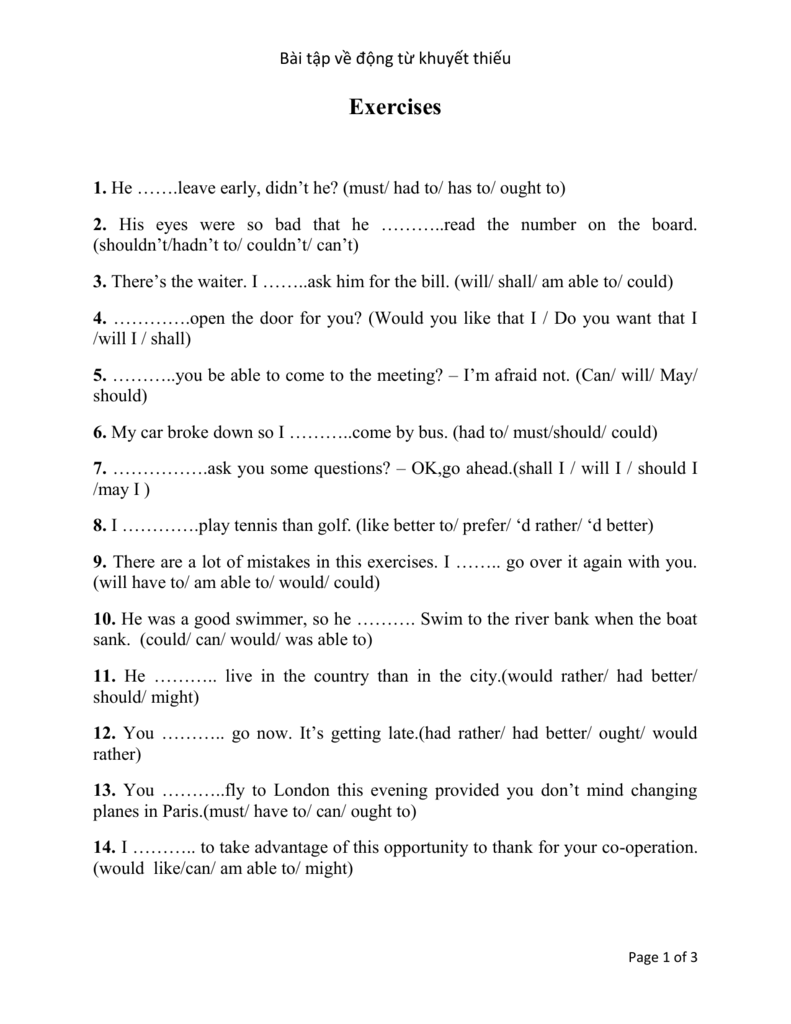



Exercises
For those who wish to use 'must' in a past tense, then the typical pattern is to use 'had to' and 'didn't have to' as it will be able to provide the same meaning In order to use 'should' in the past tense, the speaker is able to use 'should have' followed by the past participle or, in the case of negative versions, 'should not have' plus the past participle> Other English exercises on the same topic Change theme > Similar tests Modal may/might Placement test 1 Modal can (video) Modal verb must / have to Modal can/could Must / Have to Modal verbs Modal verbsIt can't be cold in his country It must be cold in his country It mustn't be cold in his country ACTIVITY 4 Write sentences to match the functions Use CAN, CAN'T, MUST or MUSTN'T a) You/eat in the classroom (prohibition) b) Students/memorize vocabulary (obligation)




Modal Verbs Interactive And Downloadable Worksheet You Can Do The Exercises Online Or Download The Worksheet A Modal Verbs Verbs Activities Have To Worksheets
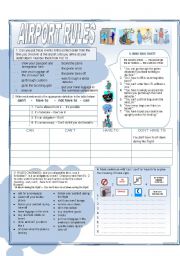



English Exercises Can Or Must
Use must infinitive without to Must is a modal verb, and modal verbs are followed by infinitive without to I must go to the doctor (NOT I must to go to the doctor) No s Modal verbs don't add s after he/she/it He must come with us (NOT He must comes with us) Use must/mustn't in negatives and questionsJerry said he would invite me to his party but he didn't 1 He make false promises 2 You're such a fun at parties, he invited you 3 You get offended, he may have forgotten to ring you up 4 You think there's something wrong with you It was Jerry's mistake 5Must and have to exercises Index of contents Can / could exercises May / might Must / have to Shall / should Will / would Mixed modals exercises Had better Home Worksheets
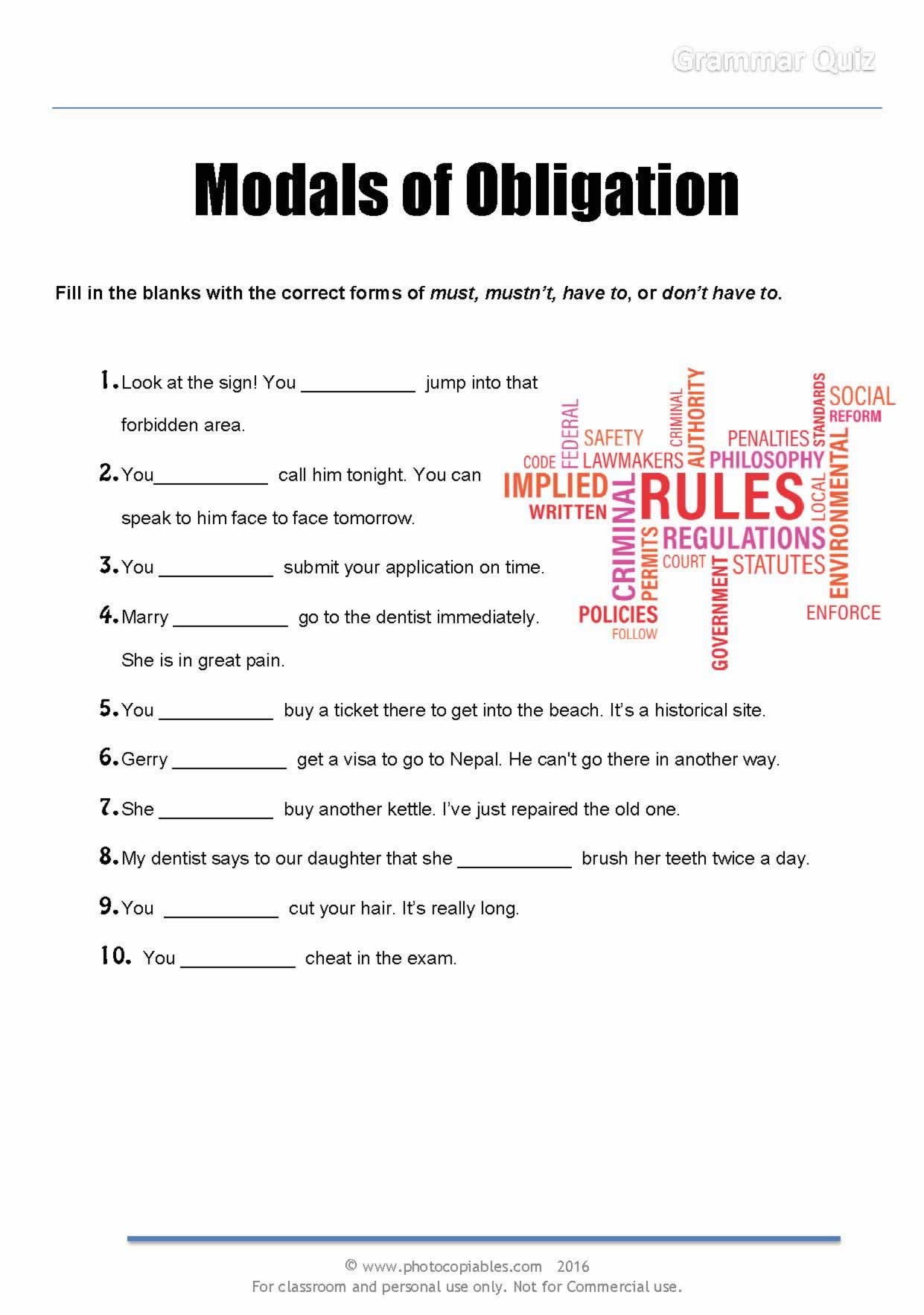



Modals Of Obligation Online Quiz Photocopiables




Oop Exercises Java Programming Tutorial




Past Modal Verbs Of Deduction Exercise Con Solucion Syntax Grammar
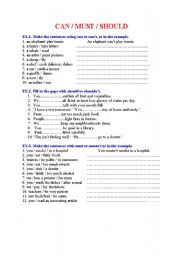



Can Should Must Exercises On Modal Verbs Esl Worksheet By Ania Z




Solved Need Help Solving These Exercises 1 Use Mysql Wor



1




Sentence Transformation Interactive Exercise
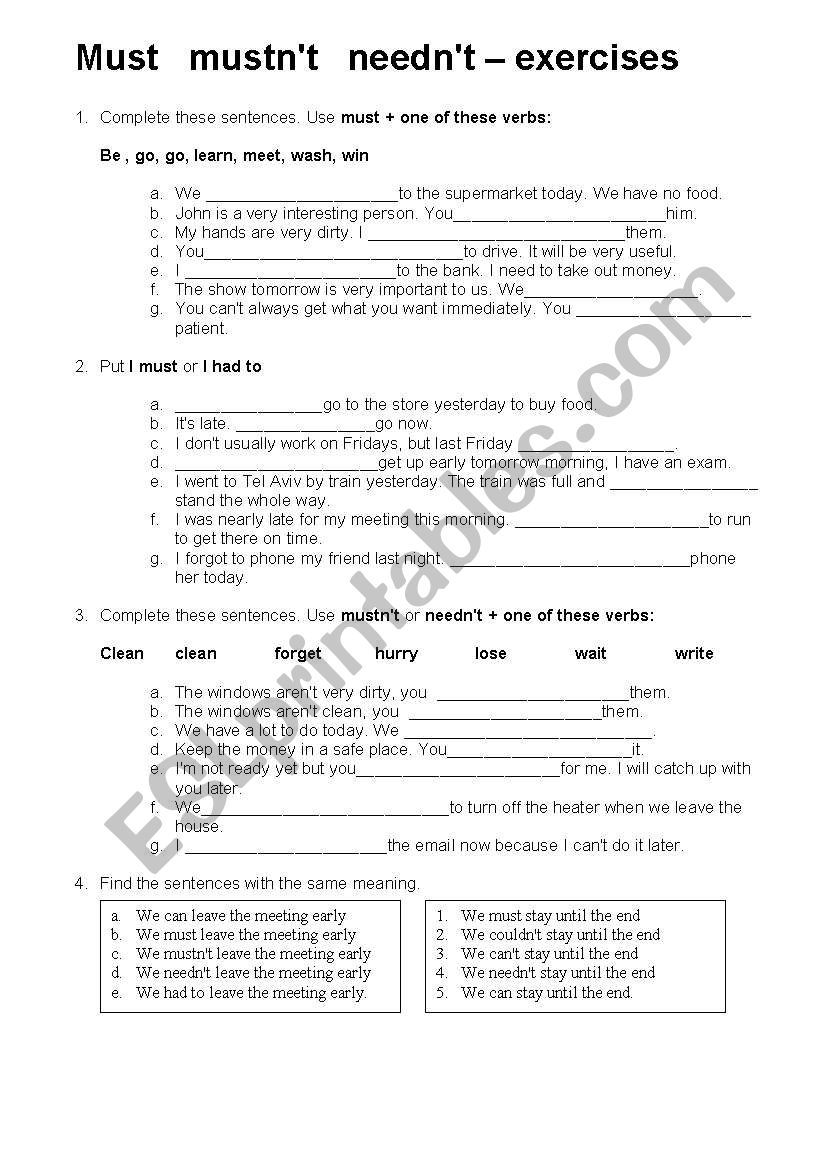



Modals Must Mustn T Needn T Exercises Esl Worksheet By Woodge78




Modal Verbs




Must Have To Had To Exercises Exercise Poster
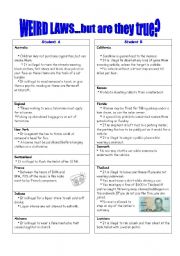



English Exercises Can Or Must
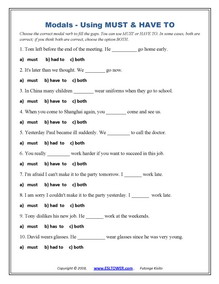



Modal Verbs Printable Modals Exercises And Worksheets



Www Bloomingtonmn Gov Sites Default Files Aqua exercise flyer v1 21 Pdf



In Plain English Should Must Or Have To




Should Must And Have To English Esl Worksheets For Distance Learning And Physical Classrooms




Pin On Stuff To Buy



1




Must Mustn T Can Have Don T Have To English Esl Worksheets For Distance Learning And Physical Classrooms



Speculation And Deduction Modal Verbs




Pin On Invățare
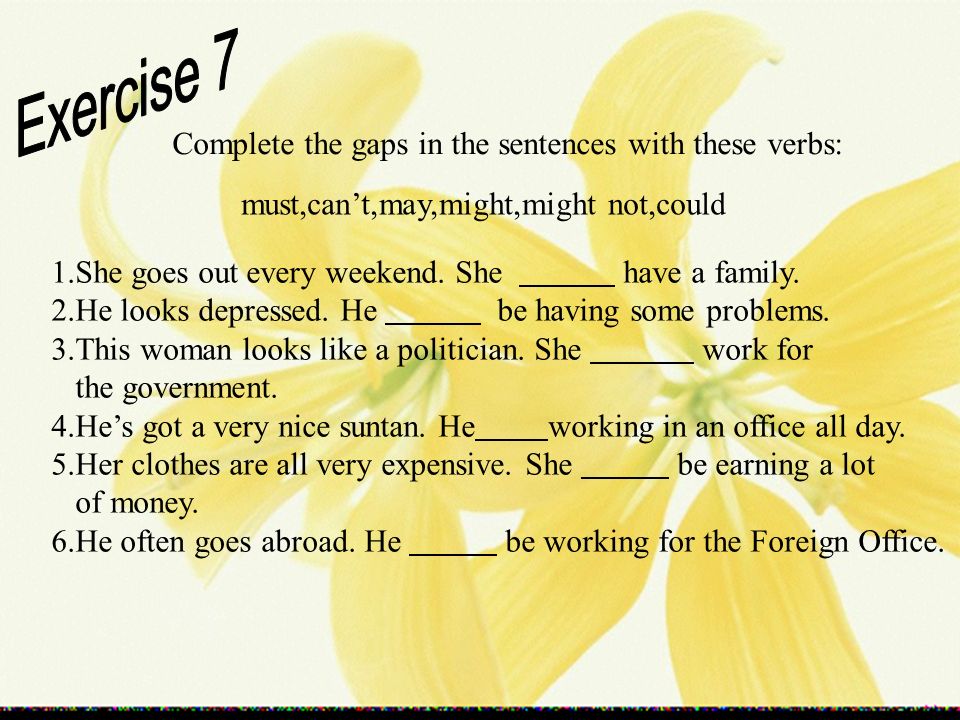



Lesson 3 Guessing About People Ppt Download
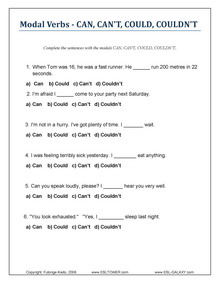



Modal Verbs Printable Modals Exercises And Worksheets
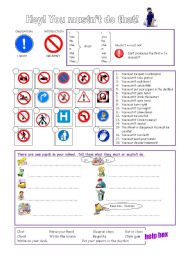



English Exercises Can Or Must




Solved Lab 6 Exercise 6 5 1 Using One Of The Full Skelet Chegg Com




Can Must Should English Esl Worksheets For Distance Learning And Physical Classrooms




Must Mustn T Have To Don T Have To Worksheet




Must Vs Have To Easy English Conversation Practice Learn English Mark Kulek Esl Youtube




Must Have To Exercises




Must Have Painting And Drawing Books With Up To 100 Exercises In Each For Kids Teens Adults Akron Ohio Moms




Exercise Is Medicine




Exercises To Improve Heart Health




14 Grammar Rules Ideas Grammar Rules Grammar Grammar Worksheets



English Worksheets Must Mustn T Worksheets Page 1
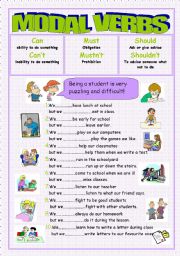



English Exercises Modals Should Shouldn T Mustn T



1
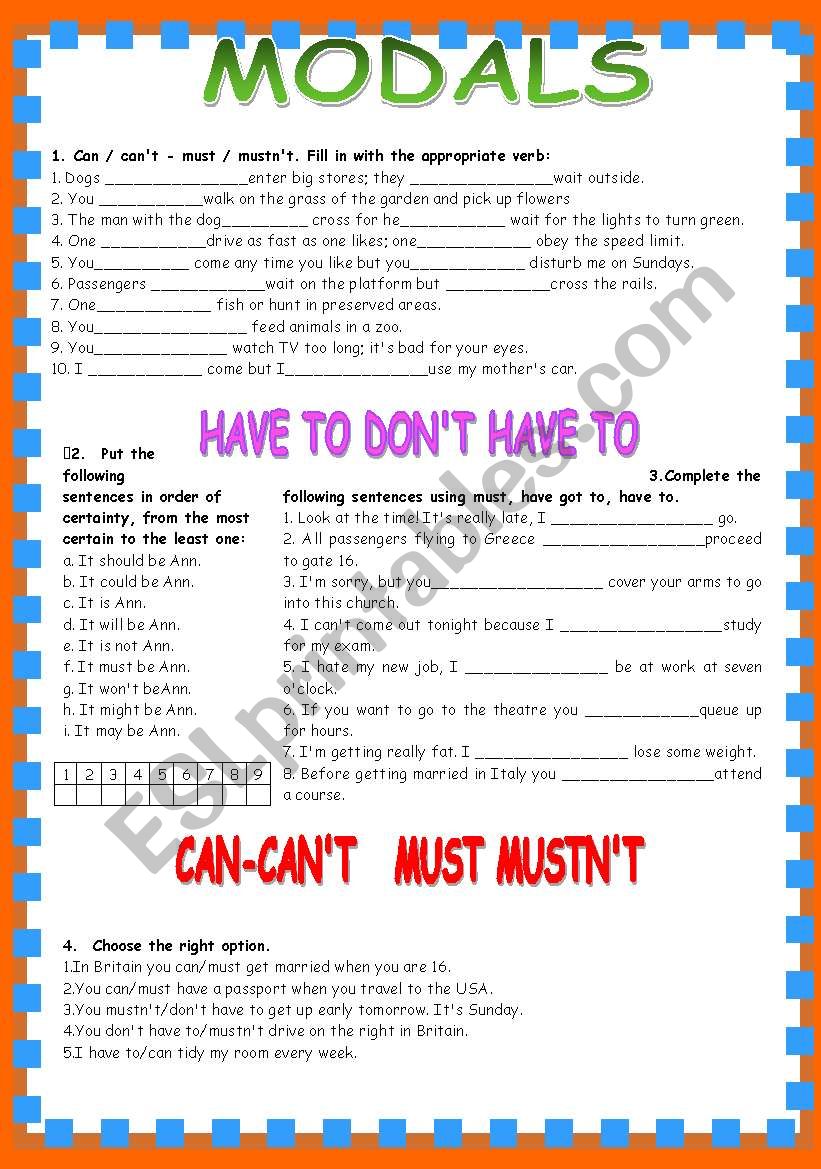



Modals Can Can T Have To Don T Have To Must Mustn T Should Shouldn T Esl Worksheet By Patties




Must Mustn T Can Have Don T Have To English Esl Worksheets For Distance Learning And Physical Classrooms
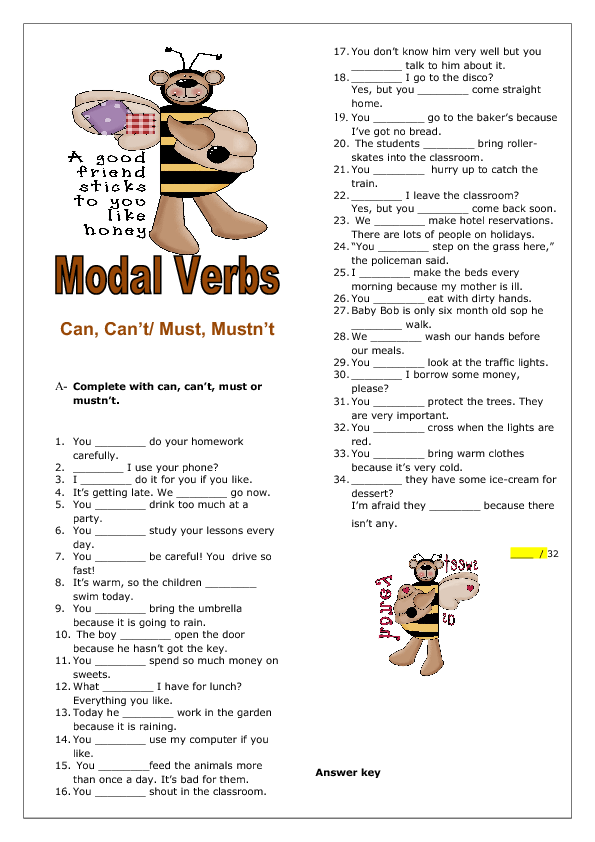



Can Can T Must Mustn T Elementary Worksheet
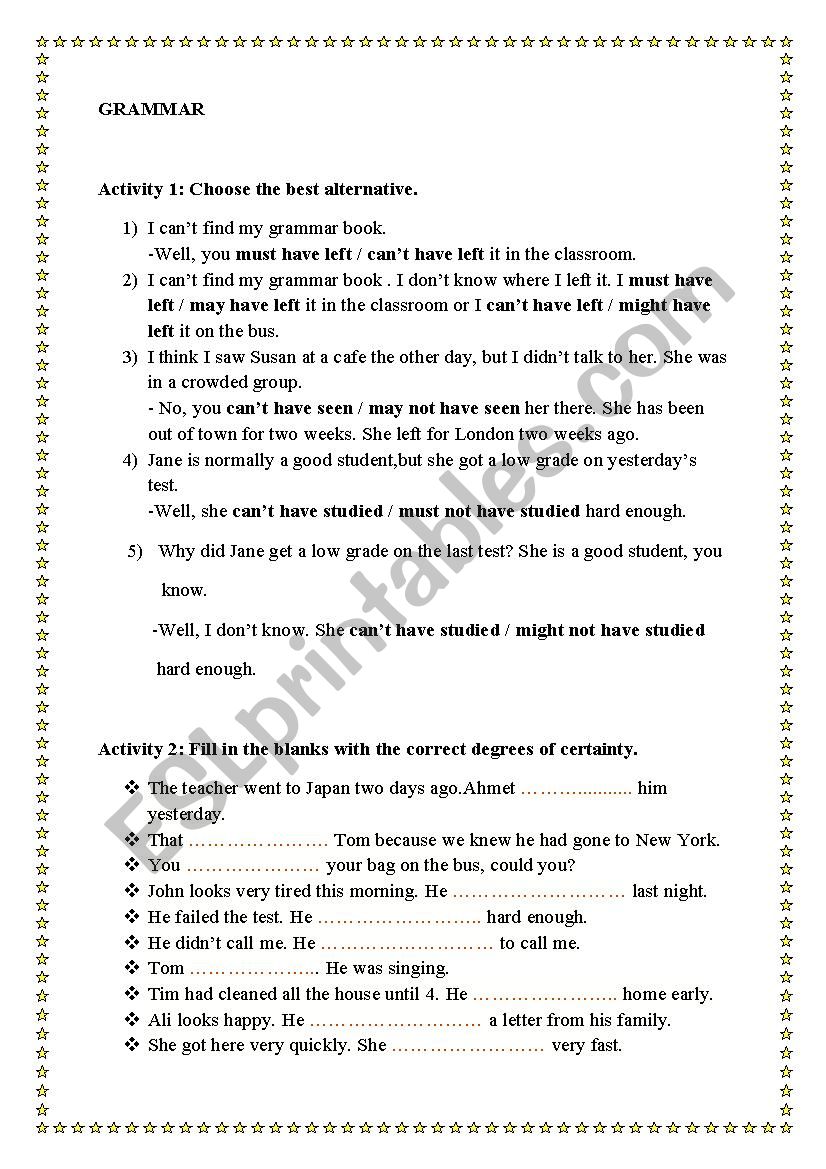



P A S T M O D A L S E X E R C I S E S Zonealarm Results




Esl English Exercises Modals Can May Must




Test English Prepare For Your English Exam
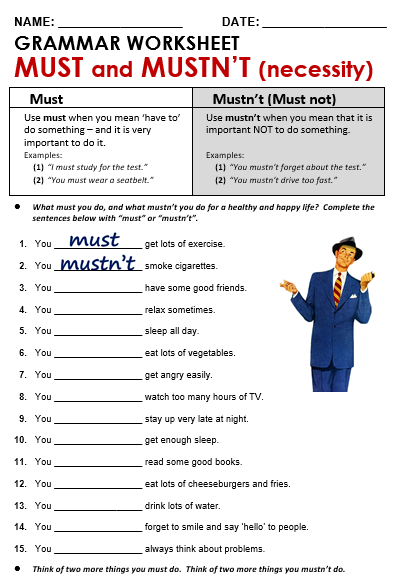



Must Necessity All Things Grammar




57 Free Have To Worksheets
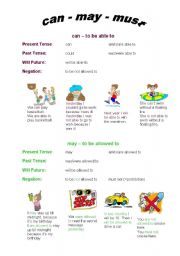



C A N M A Y M U S T E X E R C I S E S Zonealarm Results




How To Teach May Might Could Must Off2class
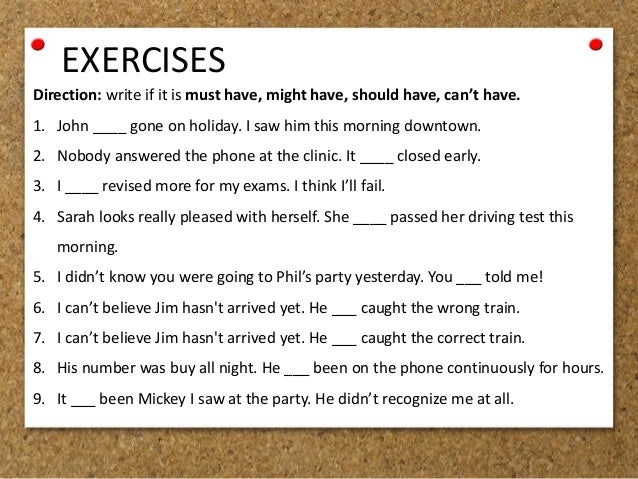



Must Have Might Have Can T Have Exercises Exercise Poster
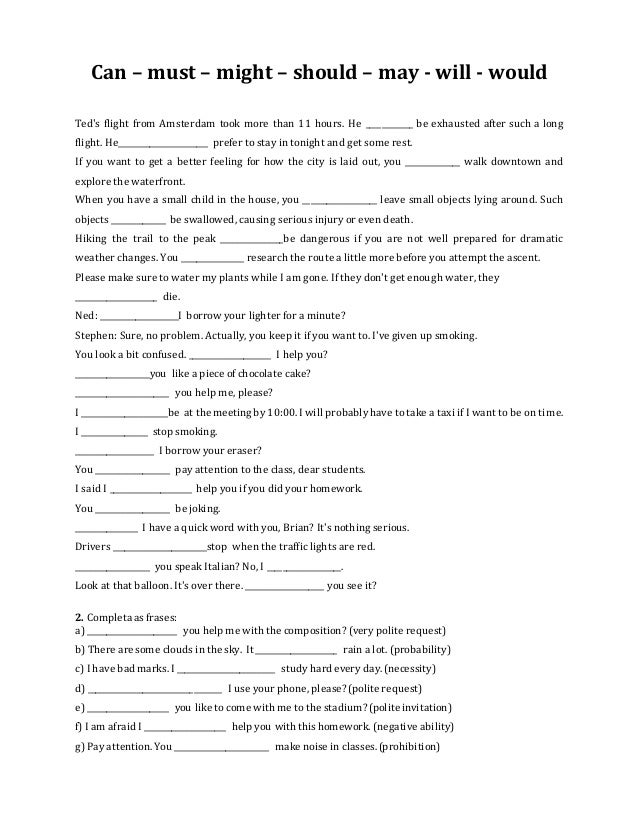



Modal Verbs Exercises
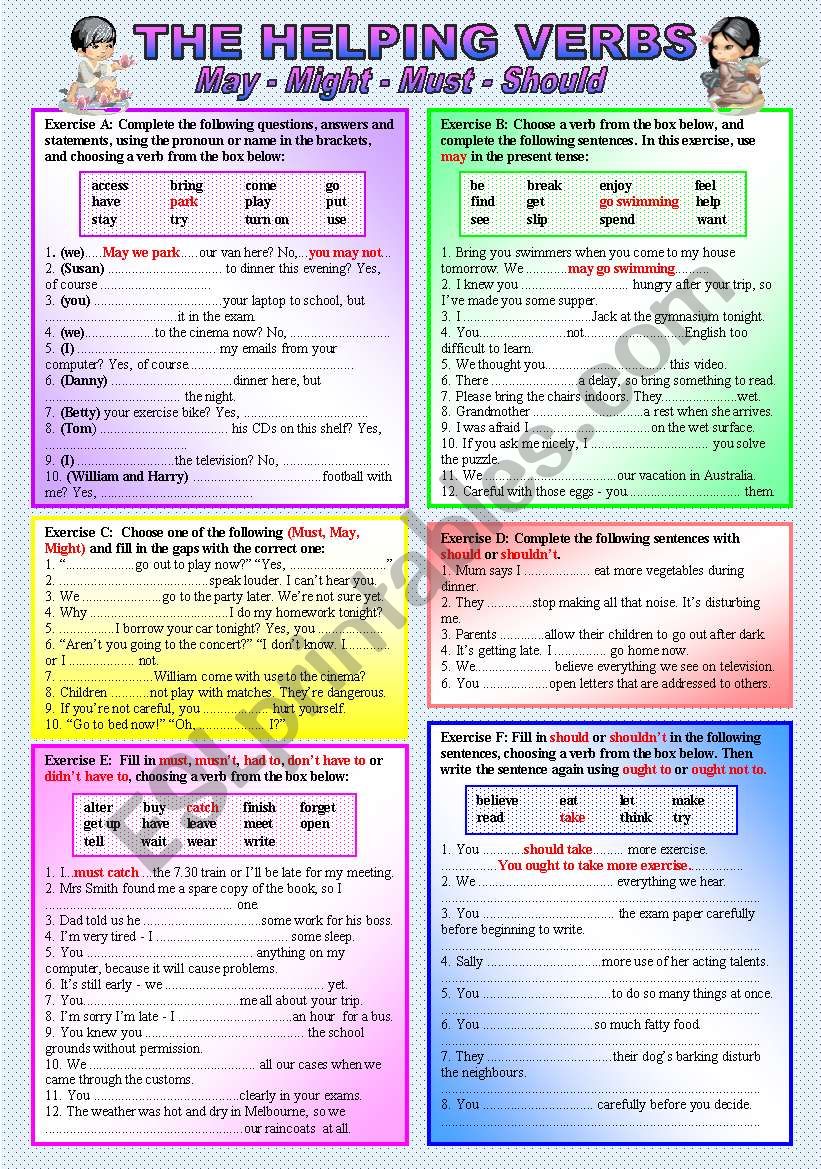



Helping Verbs Modals May Might Must Should 6 Exercises 58 Exercises To Complete Elementary Intermediate B W Version Included Esl Worksheet By Ranclaude




Sleam Upper Intermediate Grammar Exercises By Jjonestemp Issuu




The Best Exercises For Athletes



Http Www Fchp Org Employers Resources Media Files Wellnessflyers Exercise3things Ashx



English Worksheets Must Have To Worksheets




Must Mustn T Can Can T Could Couldn T Should Or Shoul T Worksheet




No More Mistakes With Modals 3 Easy Rules Youtube
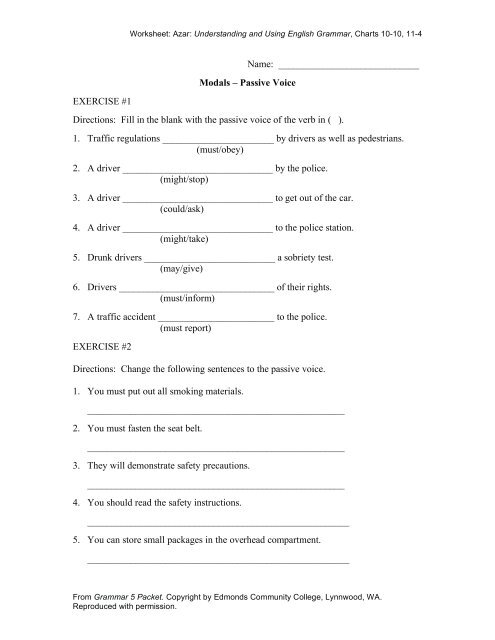



Modals A Passive Voice Azargrammar Com




7 Modals Of Necessity Examples And Definition English Study Here




Test English Prepare For Your English Exam




Modal Verbs Can May Must English Esl Worksheets For Distance Learning And Physical Classrooms
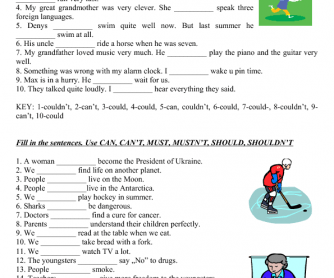



81 Free Must Worksheets




Modals Of Deduction Exercise
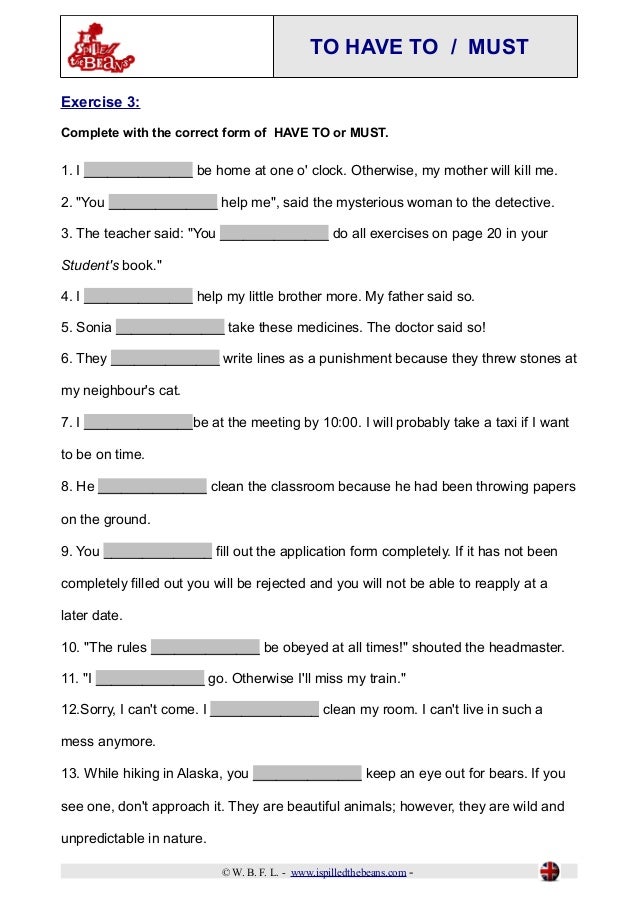



Have To And Must
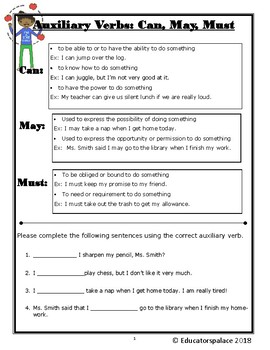



Auxiliary Verbs Can May Must By Activelibrary Tpt




Past Modals Of Obligation Exercises Modals Permission And Obligation
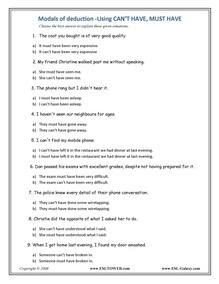



Modal Verbs Printable Modals Exercises And Worksheets




9 Modal Verbs In Modern English Theory And Exercises




Should Have Could Have Would Have Exercises Pdf




This One Should Be Very Easy For You Try To Do This Exercise No More Than 5 Minutes Modalverbs Modales En Ingles Vocabulario En Ingles Ingles Ninos
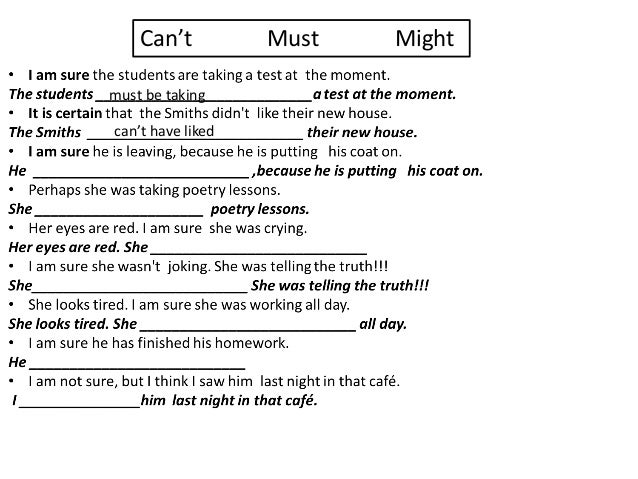



Present And Past Infinitive Exercise For Esl Students
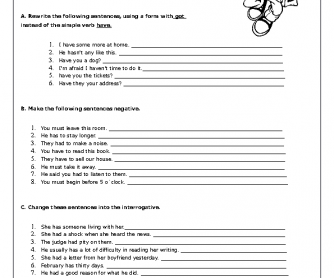



81 Free Must Worksheets



Modal Verbs Must Should Have To Worksheet Quizalize



0 件のコメント:
コメントを投稿